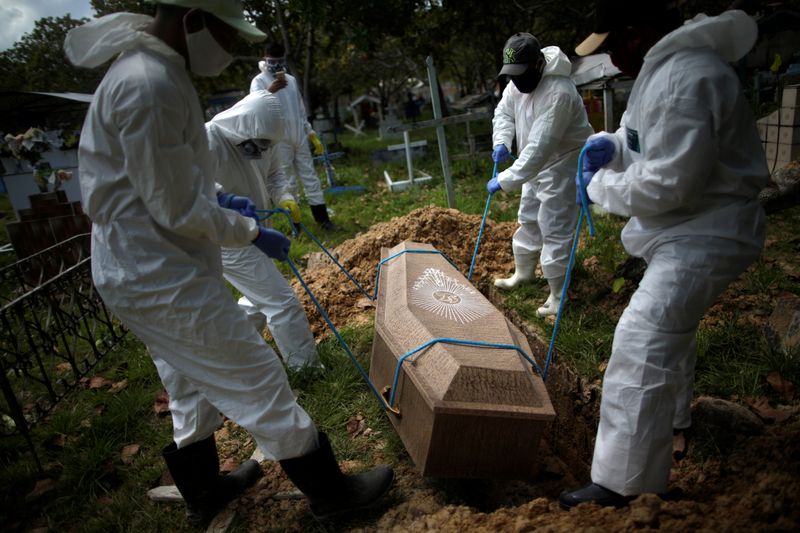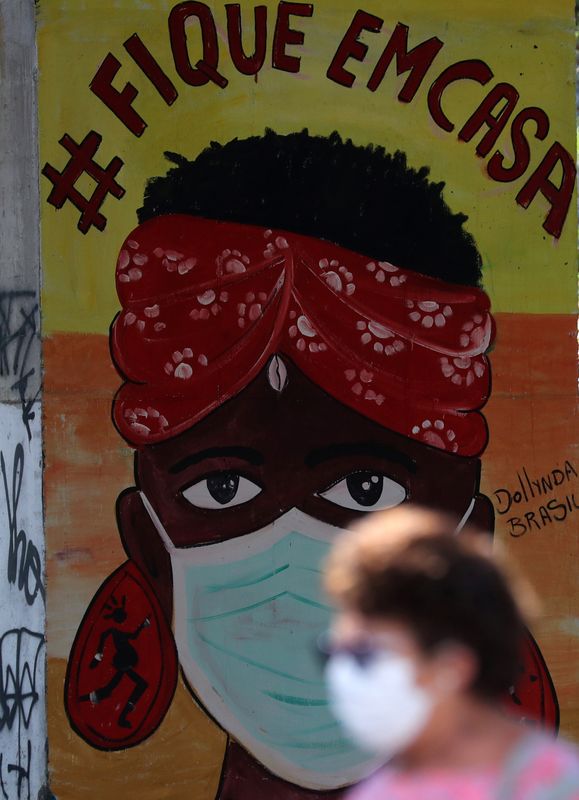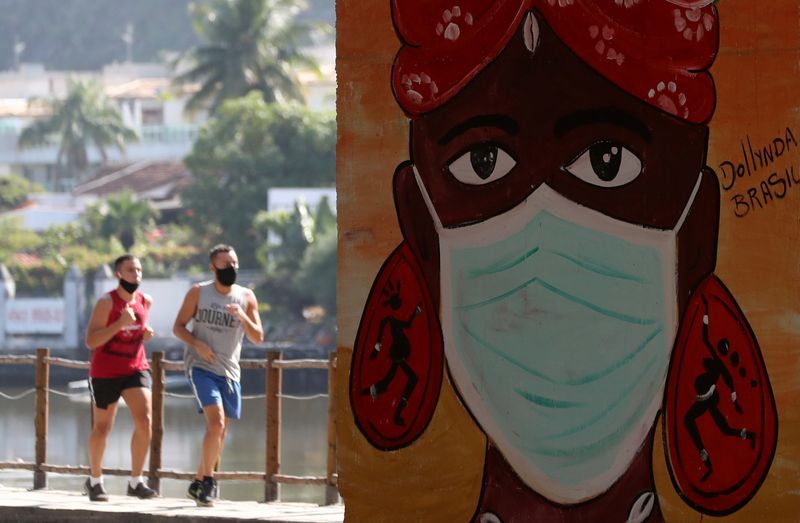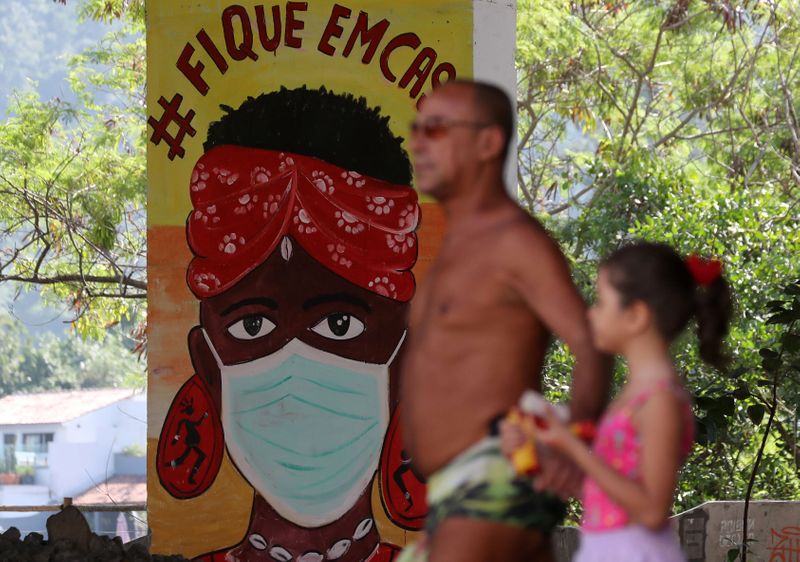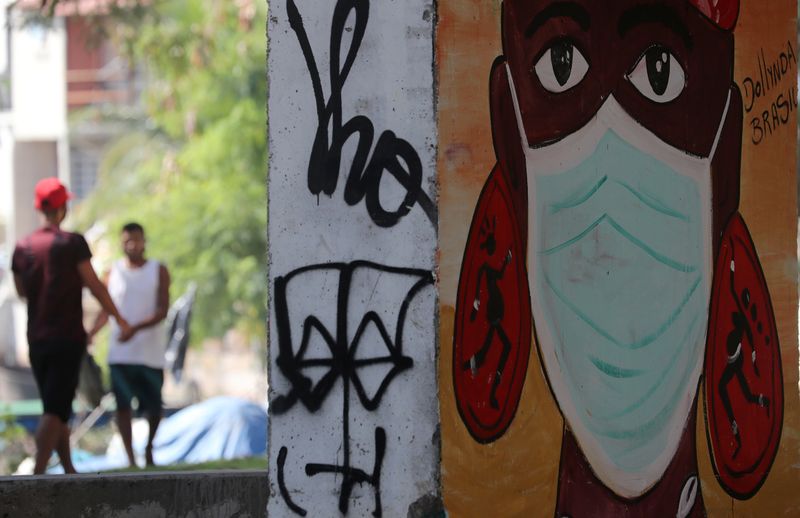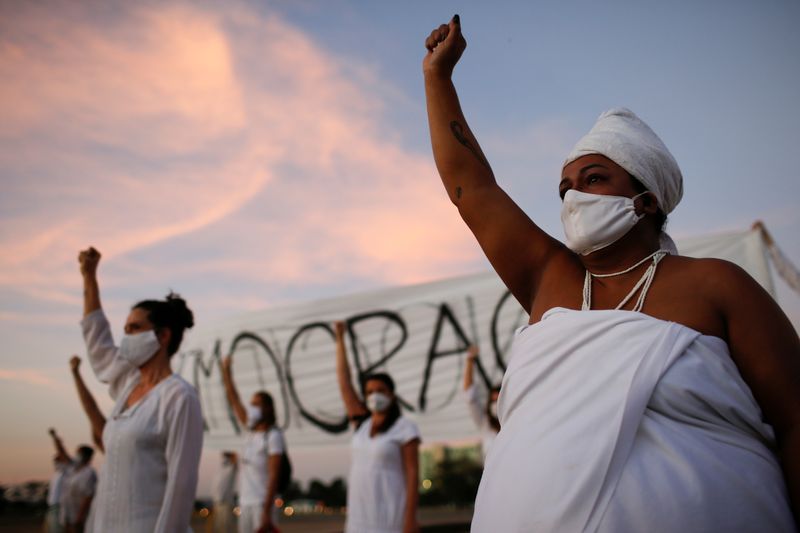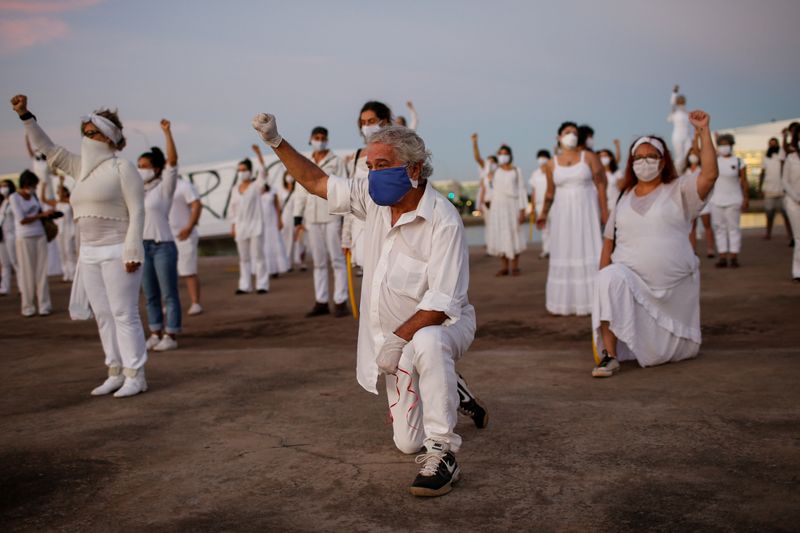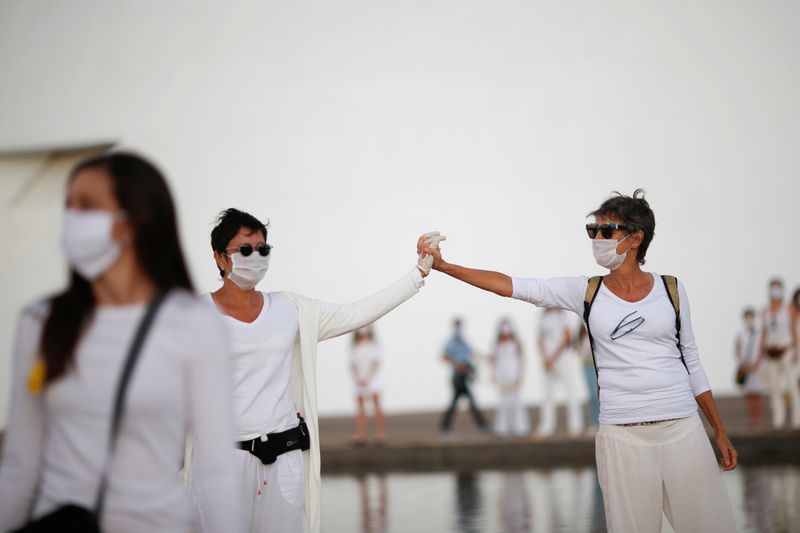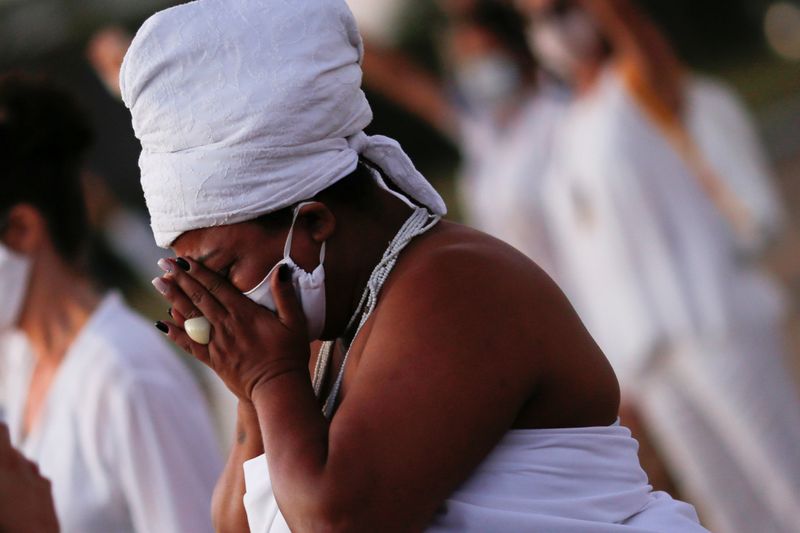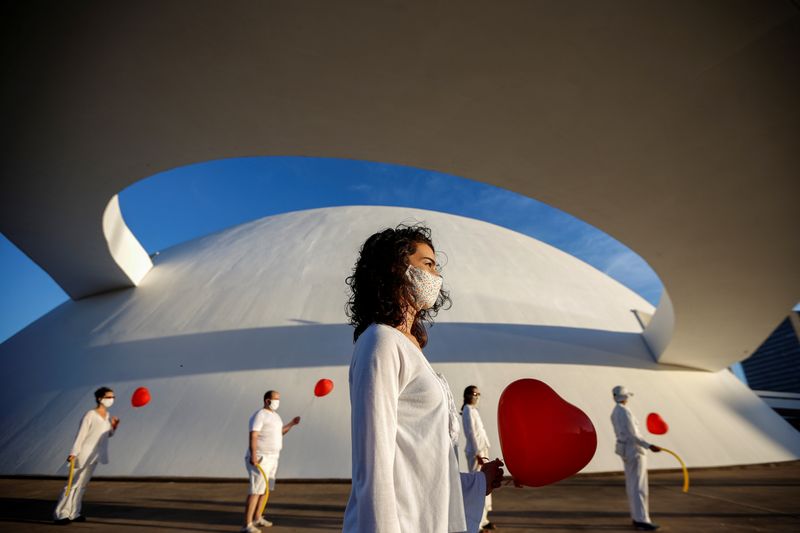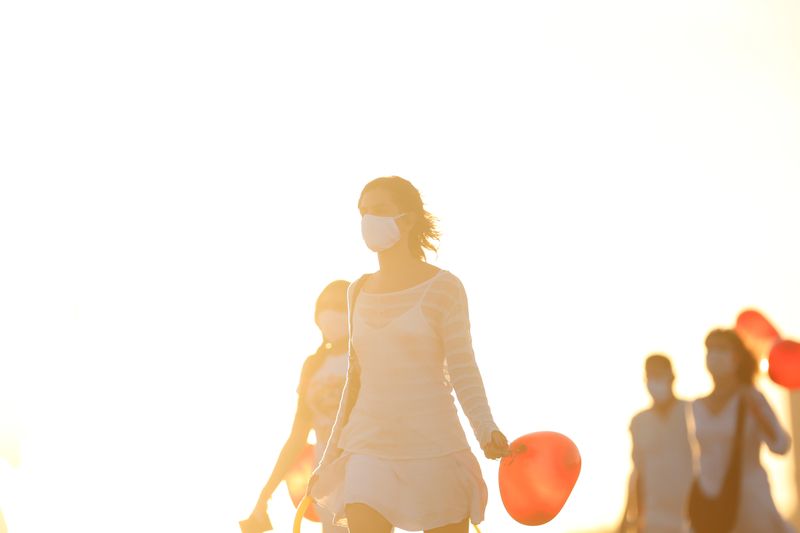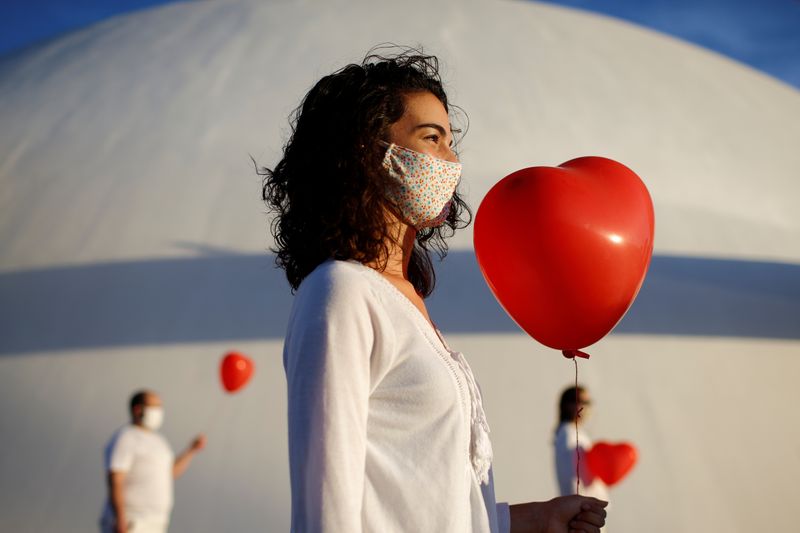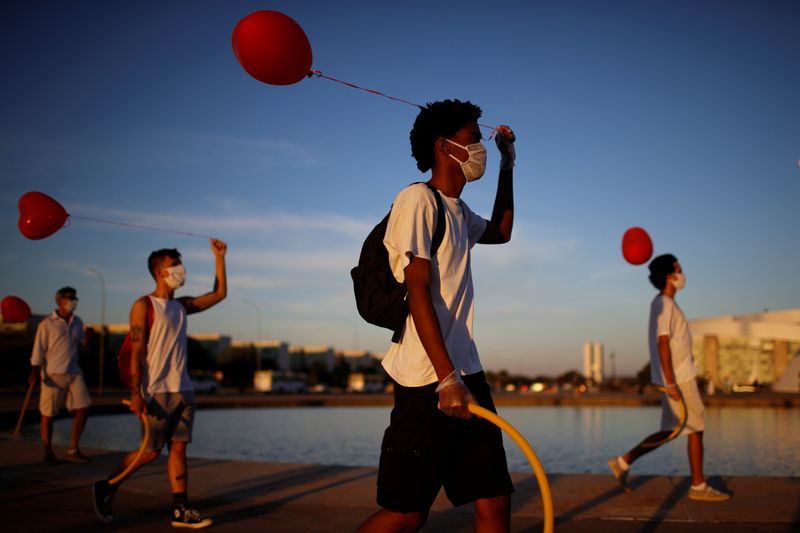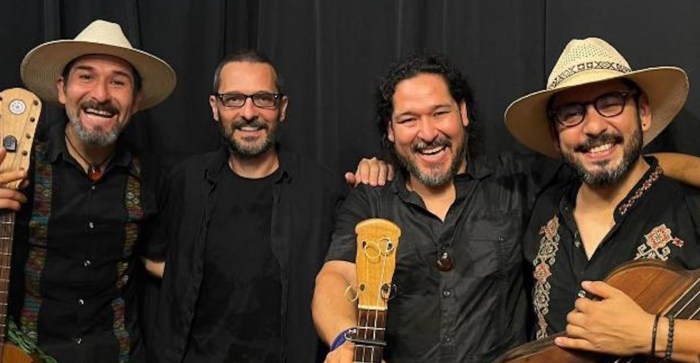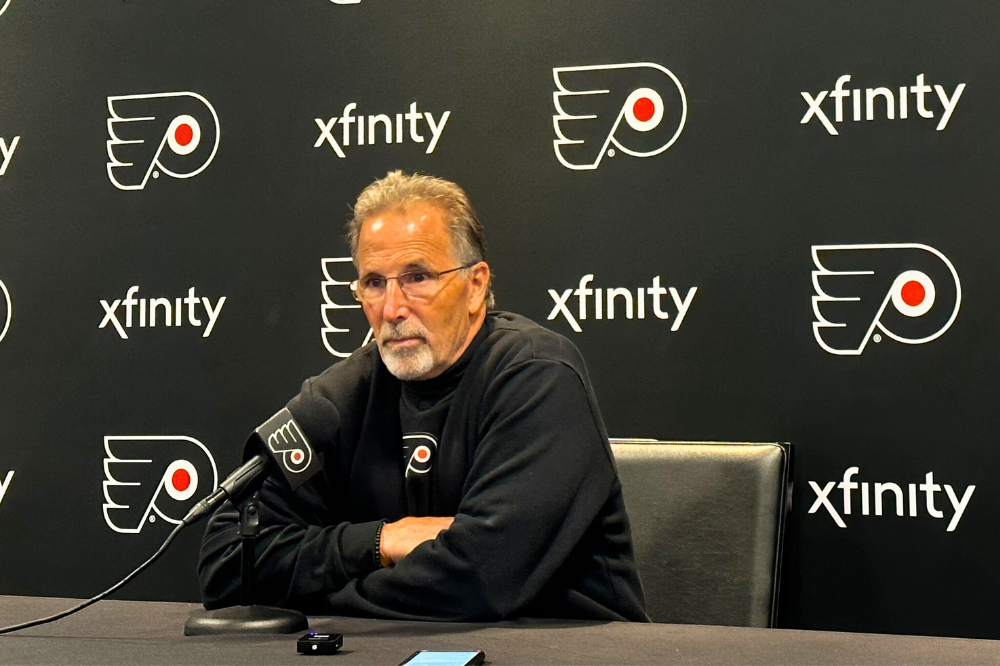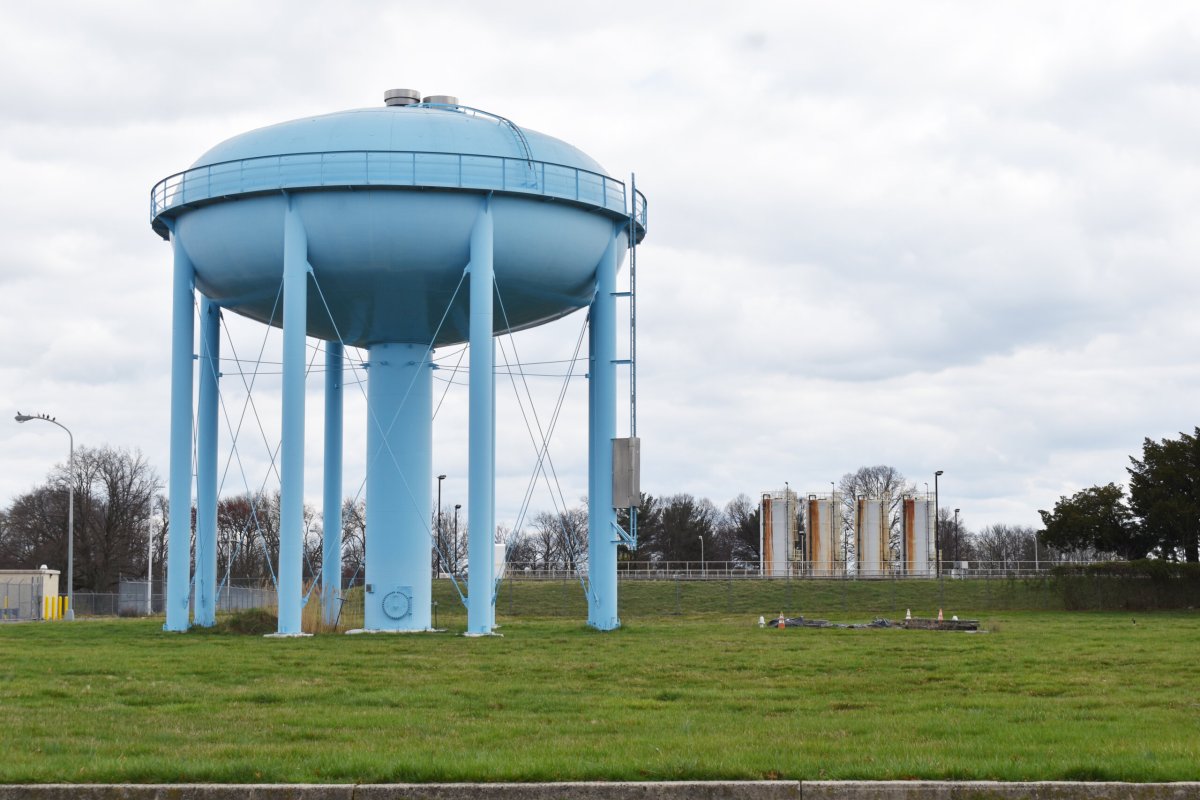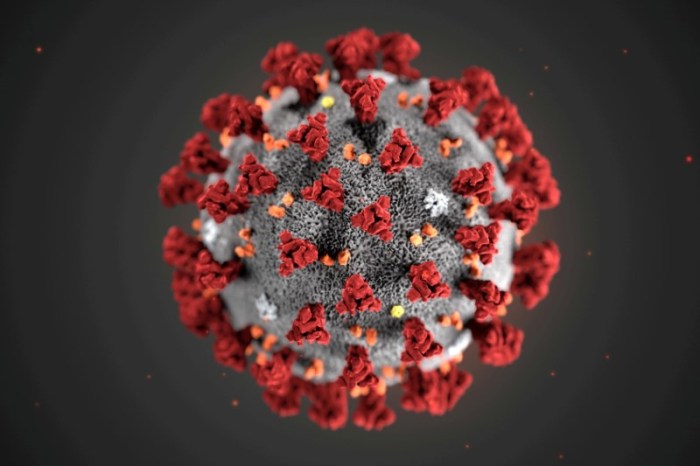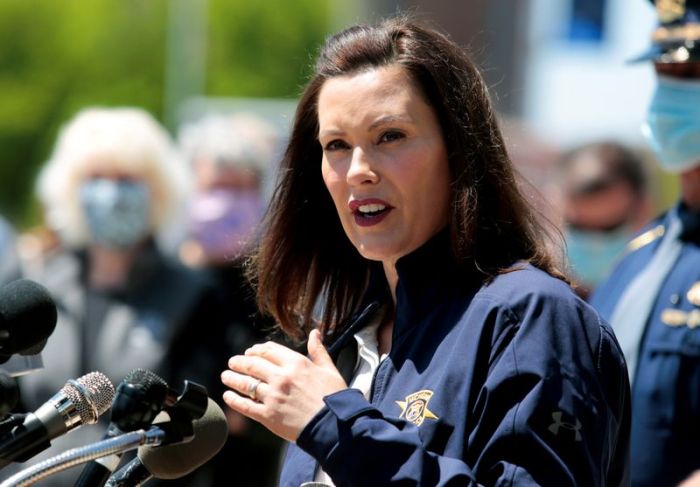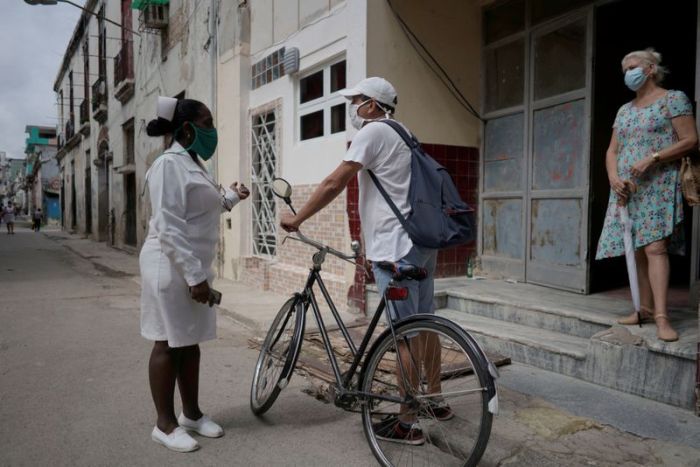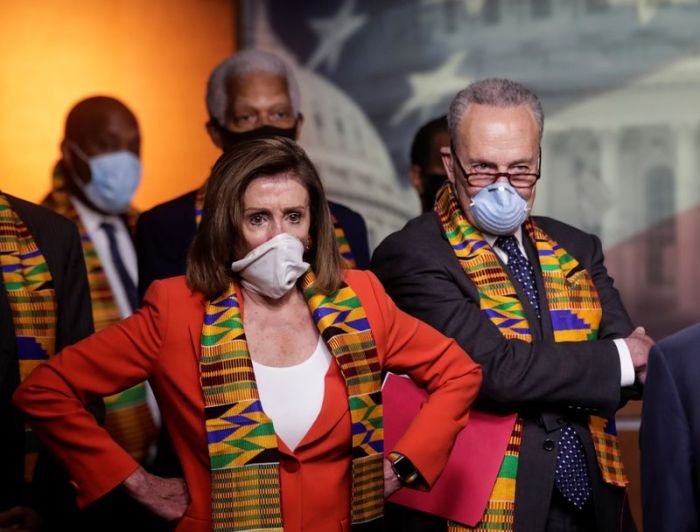RIO DE JANEIRO/SAO PAULO (Reuters) – Brazil reported 679 new COVID-19 deaths and 15,654 additional confirmed cases on Monday, as controversy grew over the country’s official coronavirus data amid allegations of manipulation from a senior lawmaker.
Brazil’s Health Ministry removed data from its website over the weekend and stopped releasing cumulative totals for coronavirus deaths and infections. The move came soon after it released two contradictory sets of data.
The numbers the government issued on Monday were the same as those reported earlier by the National Council of Health Secretaries (Conass), which brings together the heads of Brazil’s state health departments but is separate from the federal health ministry.
According to Conass, Brazil’s death toll now stands at 37,134, the world’s third highest after the United States and Britain. There were 707,412 confirmed cases as of Monday, the second highest level after the United States.
In a statement on Monday, the health ministry said its weekend dataset problems stemmed primarily from mistakes in the numbers from two states that were later corrected.
But discrepancies in the daily death toll it reported prompted criticism from across the political spectrum, including a call for a congressional inquiry.
“By changing the numbers, the Ministry of Health covers the sun with a sieve,” Rodrigo Maia, speaker of the lower house, said on Twitter.
“The credibility of the statistics needs to be urgently recovered. A ministry that manipulates numbers creates a parallel world in order not to face the reality of the facts,” he added.
Senator Eliziane Gama, leader of centrist party Citizenship, asked the Senate to open an inquiry into the numbers, while the World Health Organization (WHO) stressed the importance of “consistent and transparent” communication from Brazil.
For Carlos Machado, head of research at the National School of Public Health, the lack of dependable data in Brazil is dangerous.
“Not having updated and reliable data during a pandemic of this proportion is like driving in the dark,” he said.
“While we do not have a vaccine, information is the best weapon we have,” he added.
(Reporting by Pedro Fonseca and Eduardo Simoes; additional reporting by Emma Farge in Geneva, writing by Stephen Eisenhammer and Anthony Boadle; editing by Rosalba O’Brien, Richard Chang and Tom Brown)

